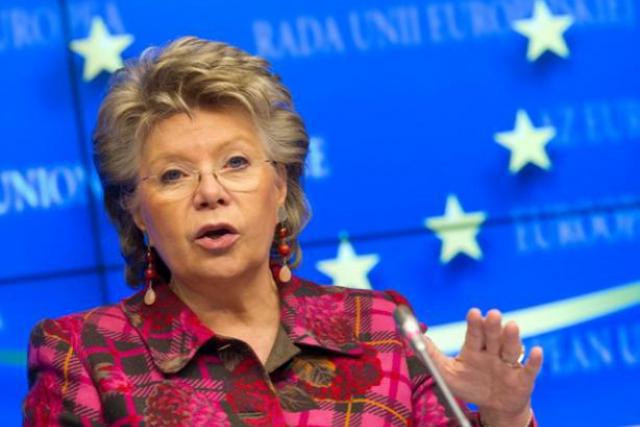In response, the EU set up East Strat Com, which gathers key examples of how pro-Kremlin disinformation finds its way in international media, as well as news and analysis on the topic.
The extent of Russia’s involvement in the leaks of the Democratic National Committee’s emails during the US presidential elections has been played out extensively in the international media last year, along with the supposed contacts between the Russians and Trump associates.
Viviane Reding, former EU commissioner with responsibility for the information society and media, and former EU commissioner for justice, fundamental rights and citizenship, told Delano in an interview:
“This political criminality is new. I define political criminality as attacking infrastructures which serve democracy through false information or hacker attacks. We first noticed it with Brexit and with the US presidential election.”
However, European media is now starting to turn its attention to any potential Russian meddling in the upcoming elections in many European countries. France, Germany, the Netherlands, Bulgaria, Norway and the Czech Republic all have either presidential or parliamentary elections which decide their country’s direction for the next years. Russia has various strategies to influence elections. Disinformation entails spreading many conflicting versions and interpretations of an event, so that people are confused and give up finding the truth.
An example of disinformation targeting the EU published by East Strat Com in January 2017: “The narrative Mr Kiselev hammers home is that Chancellor Merkel stands in the way of Russian interests.”
An example of this is the Ukraine conflict, or the Malaysia Airlines Flight 17 which was shot down over Ukrainian territory held by Russian separatists. This creates confusion, a lack of trust in government institutions, politics and the media.
A report by the European Parliament from October 2016 states that:
“Russia’s regime wants to present itself as the only defender of Christian values, use social media and internet trolls to challenge democratic values, divide Europe, gather domestic support and create the perception of failed states in the EU’s Eastern neighbourhood.”
The EU’s institutions have been worried about this for a while now. In 2015, the European Union decided to set up a task force whose aim is to address Russia’s ongoing disinformation campaign. The East Strat Com is part of the European External Action Service and has been operating since November 2015. It publishes the disinformation weekly newsletter and provides concrete examples and analysis of fake news or disinformation by Russian sponsored bloggers or news outlets. Its aim is to educate and raise awareness in the Eastern neighbourhood countries.
An example of disinformation targeting the EU published by East Strat Com in February 2017: “In Russian public opinion, Norway has thus earned the reputation of a country on a crusade against family values.”
However, it has been rumored that the team is already suffering from low funding, insufficient staffing, and a narrow mandate. The team has only eleven full-time communication experts from the EU institutions or seconded by EU member states--most of the information comes from volunteers.
Reding, now an MEP for the CSV, said on 10 March:
“This is peanuts compared to the enemy. I am against creating new institutions. We need institutions who already have a know-how, they should be further strengthened. It is more efficient to strengthen Europol to deal with this- they have the machines and the experts.”
She argued that the extent of this political criminality was serious:
“Russia has no interest in having a strong Europe as neighbour--their interest is that the EU disintegrates.”
An example of disinformation targeting the EU published by East Strat Com in March 2017: “Sweden was often singled out and presented as a particularly unsafe place to live in, despite plenty of evidence showing the opposite”
At the same time, the Ministry of Foreign Affairs in Russia has recently launched its own website which exposes fake news published in Western media.
Delano has requested comment from the Russian embassy.



